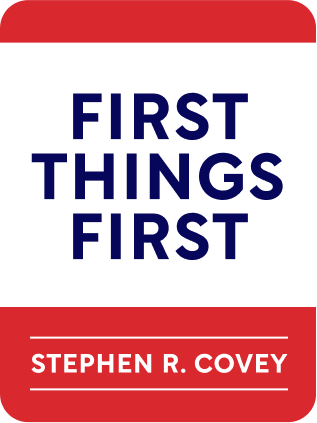

This article is an excerpt from the Shortform book guide to "First Things First" by Stephen R. Covey. Shortform has the world's best summaries and analyses of books you should be reading.
Like this article? Sign up for a free trial here .
What are the four human endowments? How are they connected? How do you strengthen and use your endowments?
The concept of the four human endowments is central to Steven Covey’s time management methodology laid out in his book First Things First. Covey believes that each of the endowments can be strengthened with consistent practice of four habits.
Keep reading for more about Covey’s four human endowments and what you can do to strengthen them.
What Are the Four Human Endowments?
As human beings, we have four endowments—the gifts of consciousness—that give us the power to act, reason, and interact with the external environment in an intelligent way. The four human endowments are self-awareness, conscience, independent will, and creative imagination.
- Self-awareness is your ability to think about your thoughts and actions. This allows you to recognize that you have paradigms, question them, and evaluate how they’re affecting your behavior.
- Conscience is your internal compass. Your conscience helps you recognize when your actions don’t align with principles.
- Independent will is your ability to choose your actions. Although habits, environment, and conditioning can strongly influence how you react to a situation, your independent will gives you the power to choose a different response.
- Creative imagination is your capacity to imagine new possibilities. This is the power to envision the future you want or come up with new solutions to problems.
Like the four human needs, these four human endowments are interrelated, and neglecting one harms the others. For example, you can have the self-awareness to recognize a change you want to make in your life, but you need the creative imagination to figure out how to make that change and the independent will to implement it.
When you effectively develop and nourish all four human endowments, they work synergistically to help you achieve a higher quality of life. Using these four human endowments enables you to create and use new paradigms, and is the core of personal leadership: Use your self-awareness to examine your paradigms, conscience to recognize whether these paradigms are in line with principles, creative imagination to imagine new paradigms, and independent will to make change.
Developing Your Endowments
How do you strengthen and use your endowments? The following habits will develop each of the four human endowments.
1. Journaling develops your self-awareness, which empowers the other three endowments. First, by writing down your thoughts and feelings, your actions, and the consequences, you can begin to recognize patterns and see the root causes of issues in your life. Second, writing down the lessons you learn and insights you gain makes you even more aware of them and further develops your conscience. Third, putting your personal commitments in writing makes it harder to ignore them and strengthens your independent will. Finally, expressing your dreams and possibilities helps to develop and nourish your creative imagination.
2. Listen to your inner thoughts and learn from them to strengthen and educate your conscience. Slow down, listen, and reflect on your thoughts. This can be difficult in the fast pace of daily life. Try reading and marinating on literature from all eras to expand your awareness of true north principles. Also, make a point of learning from your experiences and from others’ experiences. As your conscience grows, your self-worth and self-image will be influenced less and less by others’ actions and opinions of you.
3. Make an effort to make and keep promises in order to strengthen your independent will. Start small; each promise you keep — to yourself or others — will raise your sense of personal integrity and fuel your ability to keep an even bigger commitment next time. Be careful not to make promises you can’t keep because breaking a promise works against your progress by reducing your sense of personal integrity.
4. Use the practice of visualization to develop your creative imagination. Visualization is a method used by high-level athletes and performers to envision the result they want to create. Start by sitting alone in a quiet place, away from distractions and interruptions. Picture yourself in a situation that would normally cause you to react in the way you want to change — but instead of behaving this way, imagine yourself acting in a different way, a way that’s based on principles and that you feel will produce the results you want. The practice of seeing this in your mind can help you to enact it when a similar situation arises.

———End of Preview———
Like what you just read? Read the rest of the world's best book summary and analysis of Stephen R. Covey's "First Things First" at Shortform .
Here's what you'll find in our full First Things First summary :
- How to work effectively, not just efficiently
- Why you need to think more about what you're spending time on than how much time you're spending
- The 6 steps to effectively schedule and prioritize important activities






